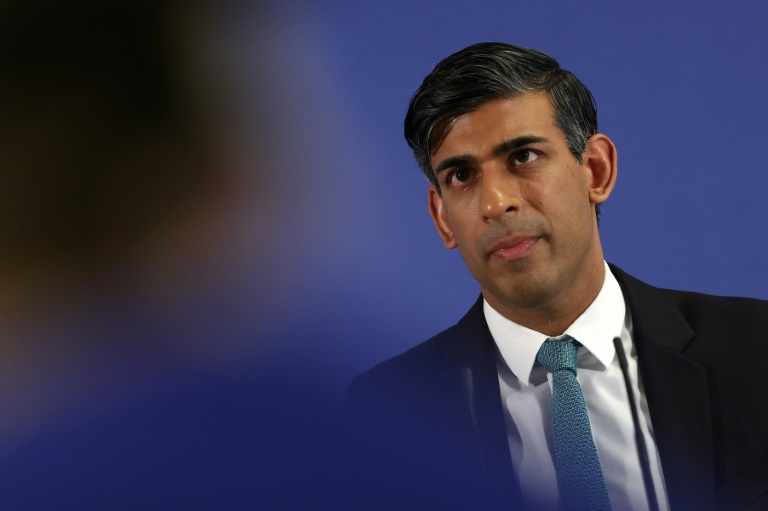Britain’s top climate change advisory body on Tuesday accused Prime Minister Rishi Sunak of creating “mixed signals and a perception of “slowing UK climate ambition”, as it demanded renewed action.
The Climate Change Committee (CCC) said the country’s image as a leader on the issue had suffered since a speech by Sunak in September in which he put the brakes on several net-zero initiatives.
The Conservative government has also approved a new coal mine and licensed new oil and gas production while postponing a plan to bar the sale of petrol and diesel cars by five years.
“The international perception of the UK’s climate ambition suffered from mixed messages following announcements on new fossil fuel developments and the prime minister’s speech to soften some net zero policies,” the committee said.
It advises on government policy over how to reach Britain’s net zero aims, and on Tuesday issued its latest report reviewing progress at the COP28 climate summit in Dubai in December.
The CCC added Sunak’s September speech and the government’s recent decisions “have contributed to a perception of slowing UK climate ambition by members of the international community”.
“Strong, consistent domestic policy and communications on climate that avoid mixed messaging are crucial to be able to robustly advocate for high climate ambition internationally,” it added.
The report comes weeks after Chris Stark quit as CCC head, following criticism of Sunak’s environmental policies. He has called now meeting the country’s 2050 net-zero target “wishful thinking”.
Stark’s resignation came just days after Conservative MP and former energy minister Chris Skidmore announced he was quitting as a lawmaker in opposition to Sunak’s decision to grant hundreds of new oil and gas drilling licences.
Sunak has defended the policies, saying the UK would pursue a “pragmatic” approach to achieving net-zero.
The UK leader has said policies have been imposed “without having an honest conversation with the country about what’s required to deliver them”.
The government remained “committed” to those targets, he insisted, adding that he had “absolute confidence and belief that we will hit them”.
The policy shift comes as British voters are facing a cost-of-living crisis that has seen food and housing costs spiral.
Some within Sunak’s ruling Conservatives — in power since 2010 — have raised concerns over the potential financial cost of reaching net-zero.
The main opposition Labour Party — leading in the polls ahead of an expected general election later this year — have joined environmental campaigners and others in criticising Sunak’s policy changes.






